Affiliate links on Android Authority may earn us a commission. Learn more.
Samsung Galaxy Note 20 vs Galaxy S20 series: Which should you buy?
April 14, 2021
A year after its predecessor was launched, Samsung unveiled the latest additions to its popular Note series. The Galaxy Note 20 and Galaxy Note 20 Ultra are primed to take on the best the smartphone world has to offer, and that includes Samsung’s other high-end series, the Galaxy S20. If you’ve waited to figure out which Samsung flagship is the best option, this is the article for you. Let’s look at the Samsung Galaxy Note 20 vs Galaxy S20 series!
Samsung Galaxy Note 20 vs Galaxy S20 series
Specs
| Samsung Galaxy Note 20/Galaxy Note 20 Ultra | Samsung Galaxy S20/Galaxy S20 Plus/Galaxy S20 Ultra | |
|---|---|---|
Display | Samsung Galaxy Note 20/Galaxy Note 20 Ultra 6.7-inch/6.9-inch FHD+/WQHD+ AMOLED Infinity-O 20:9/19.3:9 aspect ratio 60Hz/120Hz refresh rate | Samsung Galaxy S20/Galaxy S20 Plus/Galaxy S20 Ultra 6.2-inch/6.7-inch/6.9-inch FHD+/WQHD+ AMOLED Infinity-O 20:9 aspect ratio 60Hz/120Hz refresh rate |
Construction | Samsung Galaxy Note 20/Galaxy Note 20 Ultra Plastic/Metal & glass Flat/Curved display Gorilla Glass 5/Gorilla Glass 7 display cover | Samsung Galaxy S20/Galaxy S20 Plus/Galaxy S20 Ultra Metal & glass Curved display Gorilla Glass 6 display cover |
CPU | Samsung Galaxy Note 20/Galaxy Note 20 Ultra Snapdragon 865 Plus, Exynos 990 | Samsung Galaxy S20/Galaxy S20 Plus/Galaxy S20 Ultra Snapdragon 865, Exynos 990 |
Storage | Samsung Galaxy Note 20/Galaxy Note 20 Ultra 128/256/512GB microSD support up to 2TB (version dependent) | Samsung Galaxy S20/Galaxy S20 Plus/Galaxy S20 Ultra 128GB(S20, S20 Plus) 128/256/512GB (S20 Ultra) No microSD support/microSD support up to 1TB |
RAM | Samsung Galaxy Note 20/Galaxy Note 20 Ultra 8GB/12GB LPDDR5 | Samsung Galaxy S20/Galaxy S20 Plus/Galaxy S20 Ultra 8GB/12GB LPDDR4 |
Battery | Samsung Galaxy Note 20/Galaxy Note 20 Ultra 4,300mAh/4,500mAh | Samsung Galaxy S20/Galaxy S20 Plus/Galaxy S20 Ultra 4,000mAh/4,500mAh/5,000mAh |
Charging | Samsung Galaxy Note 20/Galaxy Note 20 Ultra 25W wired charging 15W wireless charging 4.5W reverse wireless charging | Samsung Galaxy S20/Galaxy S20 Plus/Galaxy S20 Ultra 25W/45W wired charging 12W/15W wireless charging 9W reverse wireless charging |
Rear camera | Samsung Galaxy Note 20/Galaxy Note 20 Ultra Note 20: 12MP (wide)+64MP (tele)+12MP (UW) Note 20 Ultra: 108MP (wide)+12MP (tele)+12MP (UW) | Samsung Galaxy S20/Galaxy S20 Plus/Galaxy S20 Ultra S20/S20 Plus: 12MP (wide) + 64MP (tele) + 12MP (UW) S20 Ultra: 108MP (wide) + 48MP (tele) + 12MP (UW) |
Front camera | Samsung Galaxy Note 20/Galaxy Note 20 Ultra 10MP | Samsung Galaxy S20/Galaxy S20 Plus/Galaxy S20 Ultra S20/S20 Plus: 10MP S20 Ultra: 40MP |
Security | Samsung Galaxy Note 20/Galaxy Note 20 Ultra In-display fingerprint sensor Ultrasonic technology | Samsung Galaxy S20/Galaxy S20 Plus/Galaxy S20 Ultra In-display fingerprint sensor Ultrasonic technology |
Durability | Samsung Galaxy Note 20/Galaxy Note 20 Ultra IP68 dust/water resistant | Samsung Galaxy S20/Galaxy S20 Plus/Galaxy S20 Ultra IP68 dust/water resistant |
Dimensions & weight | Samsung Galaxy Note 20/Galaxy Note 20 Ultra Note 20: 161.6 x 75.2 x 8.3mm 192g/194g Note 20 Ultra: 164.8 x 77.2 x 8.1mm 208g | Samsung Galaxy S20/Galaxy S20 Plus/Galaxy S20 Ultra S20: 151.7 x 69.1 x 7.9mm 163g S20 Plus: 161.9 x 73.7 x 7.8mm 186g S20 Ultra: 166.9 x 76 x 8.8mm 222g |
Features
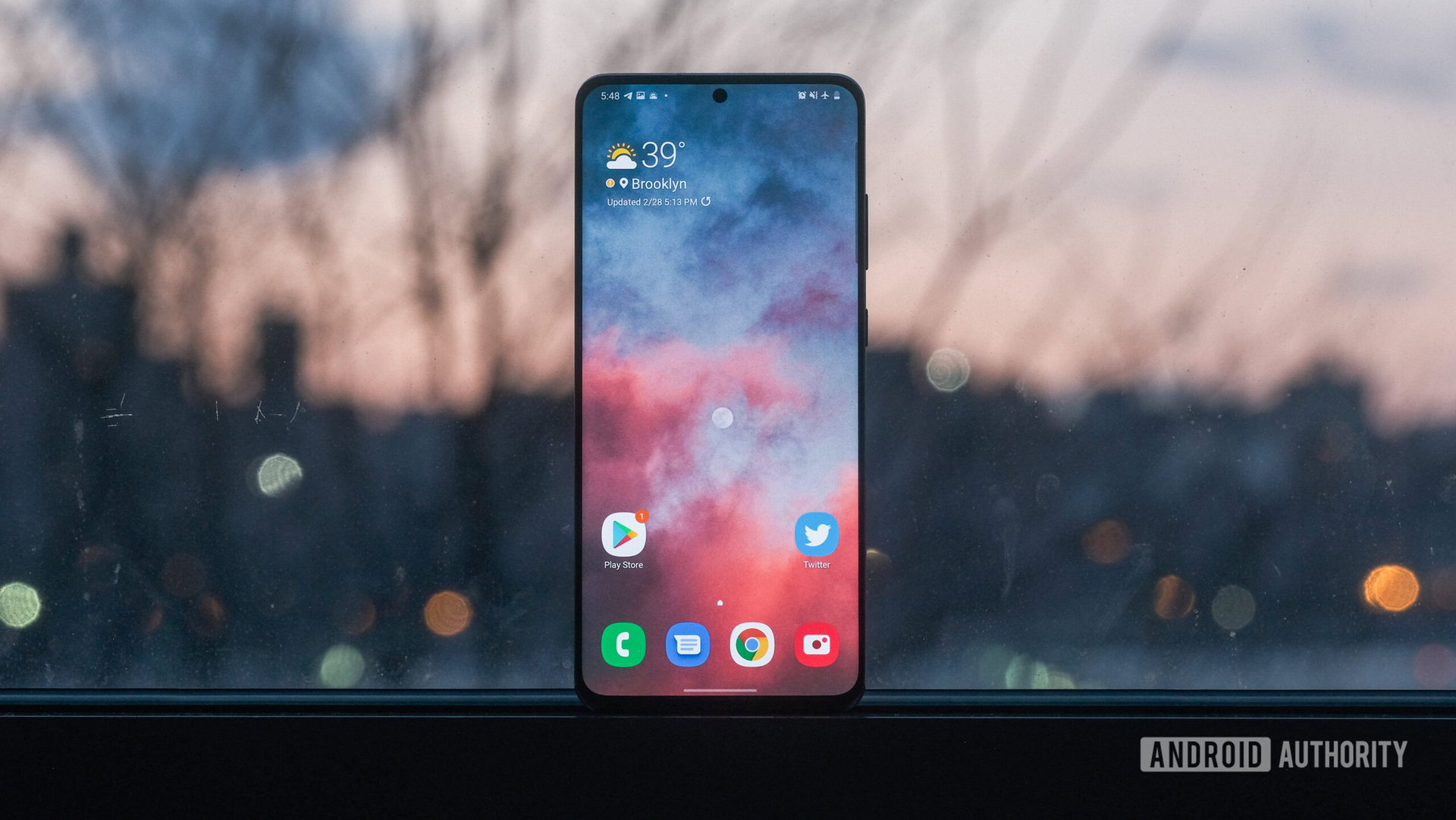
Samsung kicked off 2020 with the Galaxy S20, Galaxy S20 Plus, and Galaxy S20 Ultra. The Galaxy S20 Ultra earns its moniker and is an absolute beast. Things are a lot more similar when looking at the S20 and the S20 Plus though, with the display size and battery capacity the only major differences.
With the Note series, Samsung sticks with the two-device model that it introduced with the Galaxy Note 10 line. This time around, we have the Galaxy Note 20 and the Galaxy Note 20 Ultra. There’s also a much clearer divide between the two variants, even if both are powerhouses in their own right.
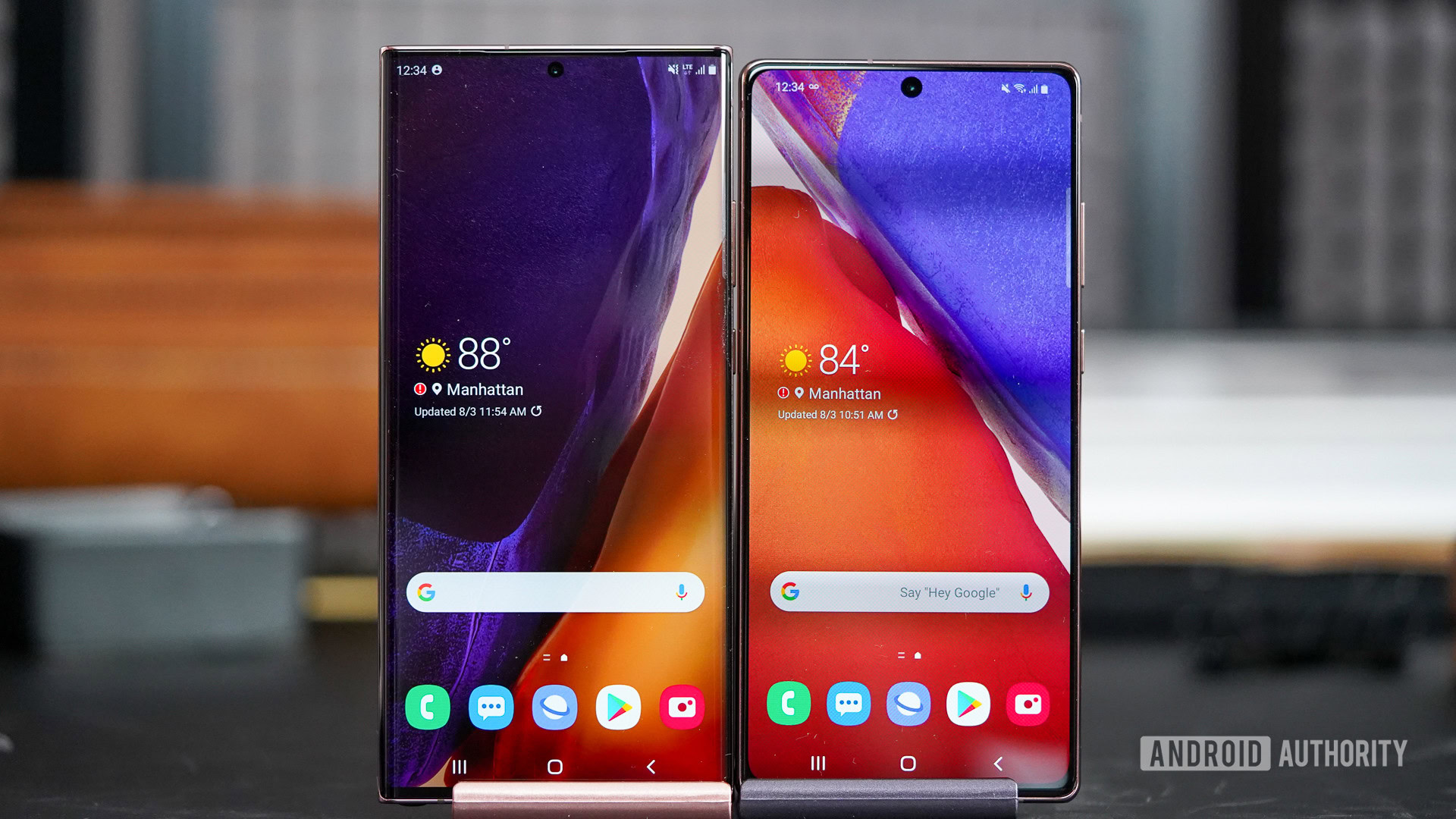
That starts with the display. The Galaxy Note 20 Ultra comes with a Quad HD display which is also larger than the Full HD screen of the regular Note 20. On the other hand, the S20 series features Quad HD resolution displays across the board. The entire Galaxy S20 family also supports a 120Hz refresh rate, though you have to dial down the resolution to 1080p. Meanwhile, the higher refresh rate is only available on the Note 20 Ultra. Another upgrade on the front of the Galaxy Note 20 Ultra is the use of Corning Gorilla Glass 7 — the first phone to do so.
Related: Samsung Galaxy S series: A history of the biggest name in Android
The Galaxy S20 series is powered by the Snapdragon 865, while the Note 20 pair gets an upgrade to the Snapdragon 865 Plus, delivering improved speeds and faster graphics rendering. Performance won’t be a problem with any of these phones of course. But if you want the best of the best, the Galaxy Note 20 devices are the way to go. A similar upgrade isn’t available with global variants of both the S20 series and the Note 20 devices though. With these versions, the Exynos 990 is what you’ll find under the hood.
Things are identical as far as RAM and storage are concerned. 8GB of RAM and 128GB of built-in storage is available with the “lesser” models like the S20, S20 Plus, and Note 20. You have the option to bump things up to 12GB of RAM and 512GB of storage with both the Ultra models. Depending on the market and variant, you might also have the option for expandable storage via microSD card (up to 2TB) as well. The global version of the Note 20 phones also come with 256GB base storage, which is a nice bonus.
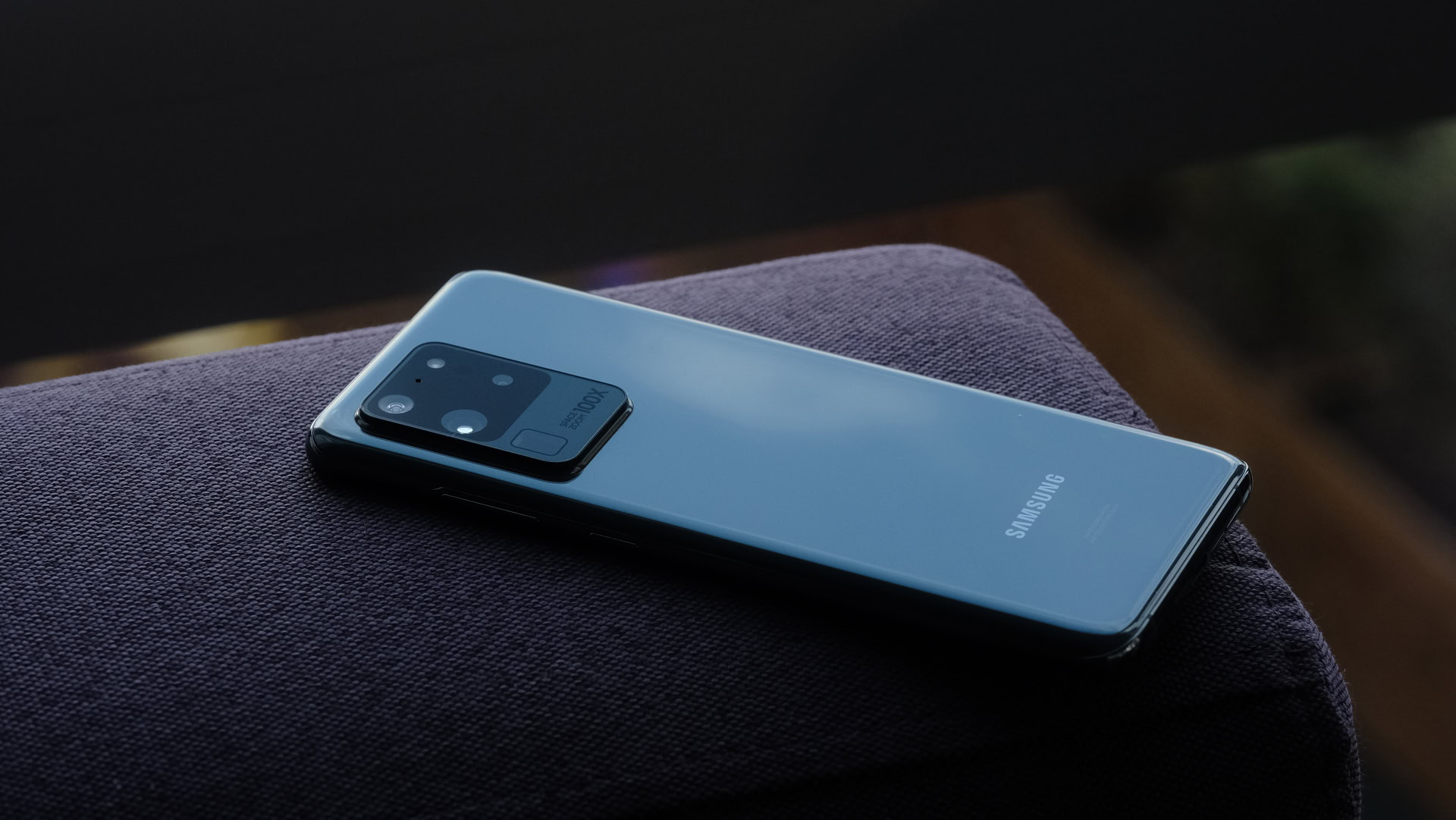
The story stays largely the same when looking at the cameras. The Galaxy S20, S20 Plus, and Note 20 come with the same camera setup that includes a 12MP wide-angle lens, a 64MP telephoto lens, a 12MP ultra-wide shooter, and a 10MP selfie camera. You’ll have to opt for the two Ultra models to enjoy the 108MP primary rear camera. It’s worth noting that the S20 Ultra comes with a 48MP telephoto lens, but Samsung drops that down to a 12MP unit with the Note 20 Ultra.
There are a few differences when it comes to battery capacity. You get 4,300mAh and 4,500mAh batteries with the Note 20 and the Note 20 Ultra, respectively. On the other hand, the Galaxy S20 Ultra packs a larger 5,000mAh unit, while the S20 and S20 Ultra have 4,000mAh and 4,500mAh batteries. We are going to thoroughly test the Note 20 series’ battery performance, of course, but it’ll be interesting to see whether the on-paper advantage the Galaxy S20 Ultra has translates to any real-world benefits.
You’ll also get to enjoy Samsung’s One UI software skin regardless of which phone you get. However, the software news that took everyone by surprise was the fact that the Galaxy Note 20 devices will get three years of updates. In further exciting news, Samsung also confirmed that the Galaxy S20 series will hit the three-year mark.
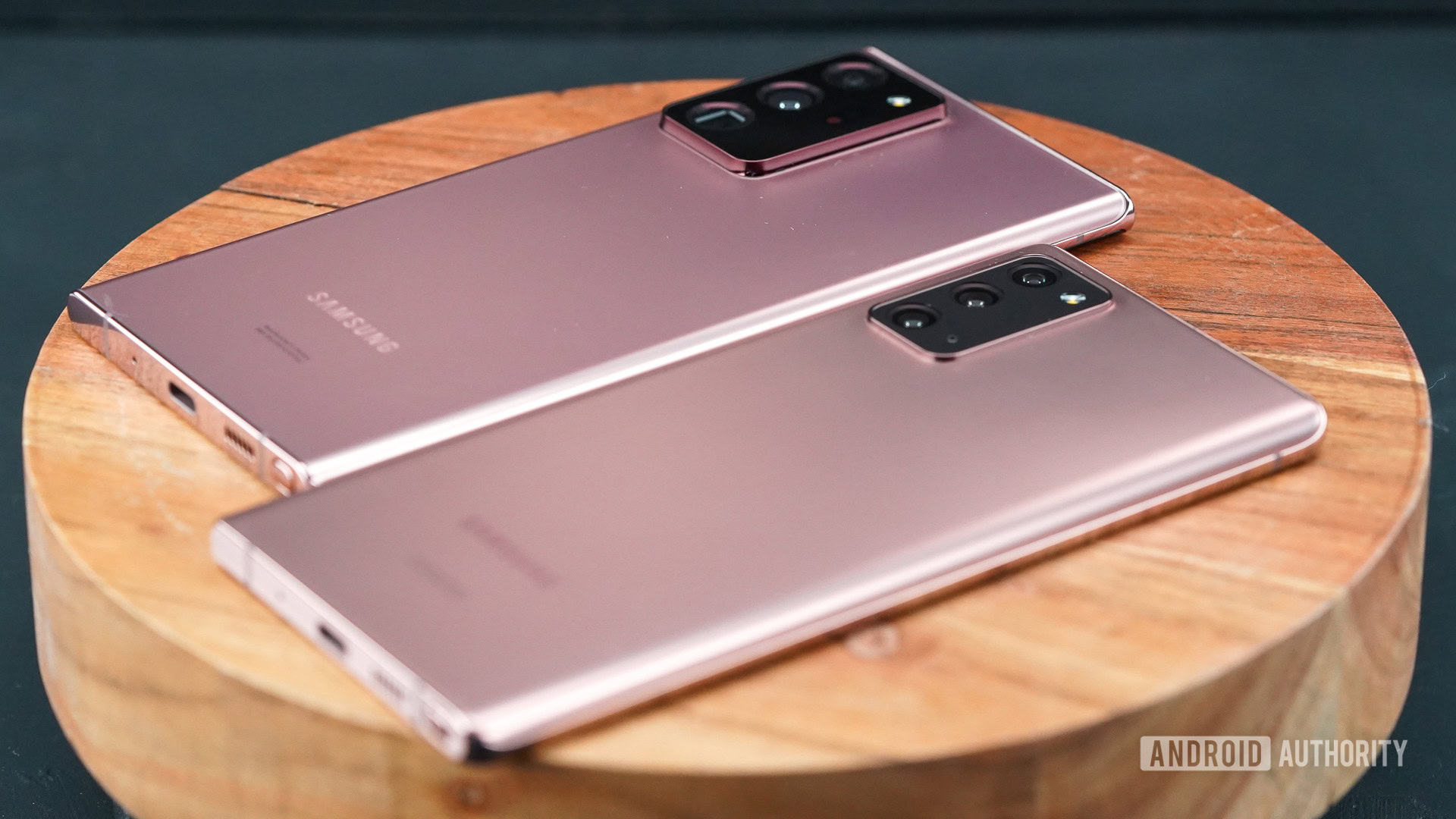
We finally come to what is now the main differentiating factor between the S series and the Note series — the S Pen. As is the case with every iteration, the S Pen provides an even better experience than previous generations. Samsung says the stylus has “more lifelike precision” that recognizes greater levels of pressure. It claims that this will feel like you’re writing on actual paper. There are also four new gestures you can make with the S Pen in order to interact with various apps and content on Note 20 as well. We’ll test all these out very soon!
Price
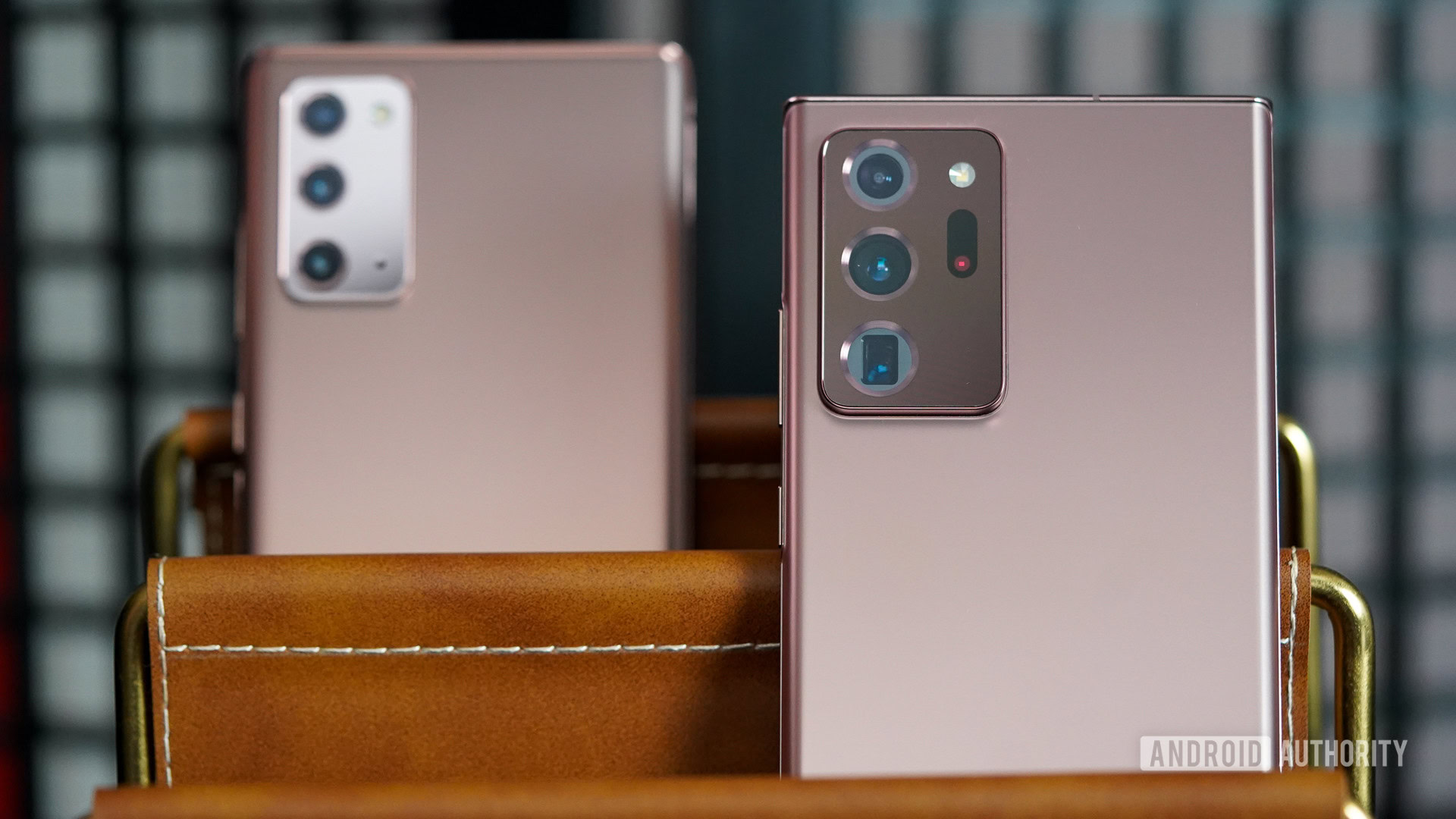
The Samsung Galaxy S20 devices were launched with a pretty high MSRP. Unsurprisingly, the Galaxy Note 20 and Galaxy Note 20 Ultra follows in the footsteps of its flagship siblings. Here’s a look at the prices of these phones in the US. Head here for more on global pricing and availability of the Note 20 family.
- Samsung Galaxy Note 20: $999 (8GB/128GB)
- Samsung Galaxy Note 20 Ultra: $1,299 (12GB/128GB), $1,449 (12GB/512GB)
- Samsung Galaxy S20: $999 (8GB/128GB)
- Samsung Galaxy S20 Plus: $1,199 (8GB/128GB)
- Samsung Galaxy S20 Ultra: $1,399 (12GB/128GB)
Samsung Galaxy Note 20 vs Galaxy S20 series: Which should you buy?
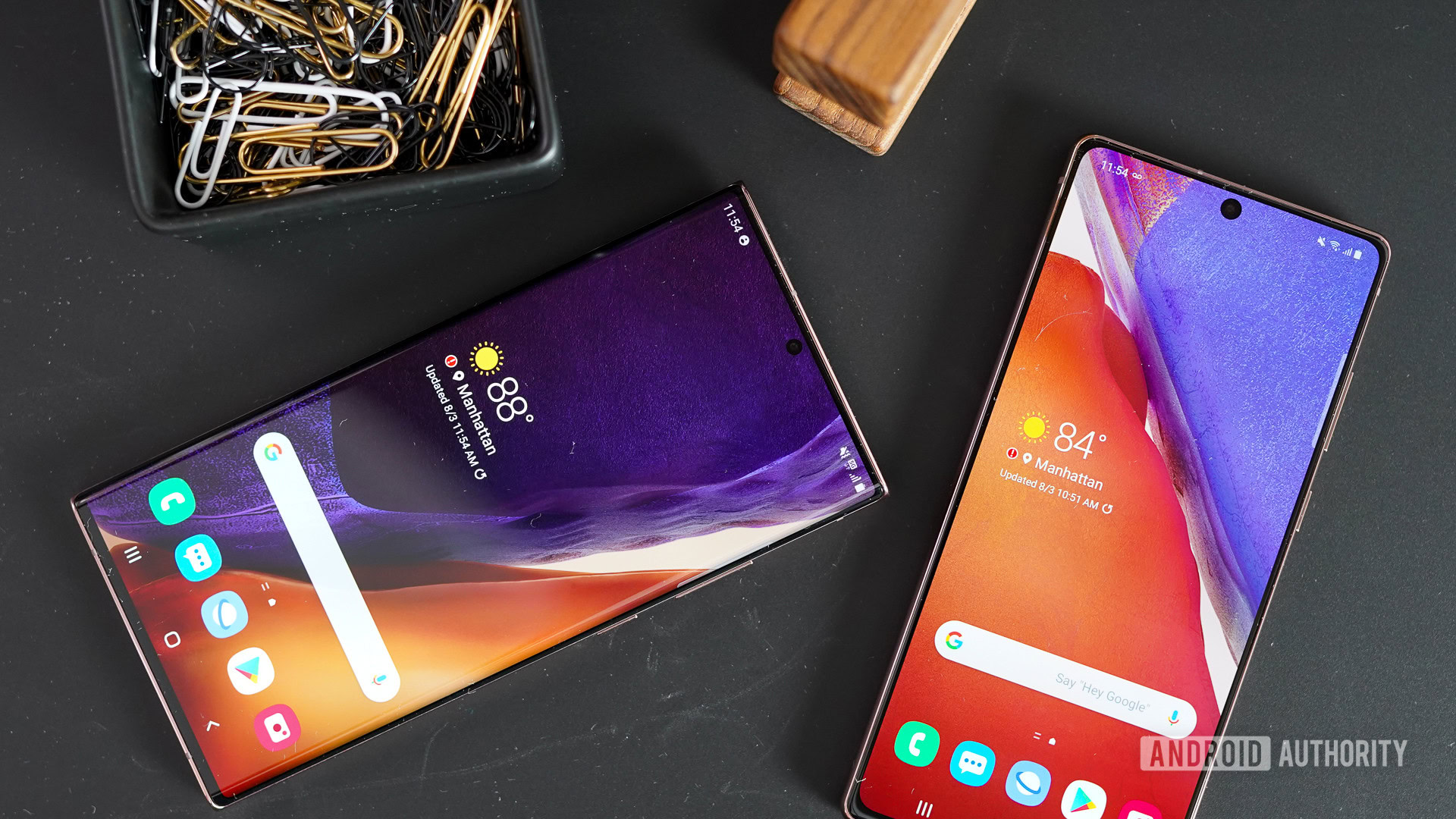
The lines between Samsung’s S series and the Galaxy Note line have blurred over the past few years. In 2020, there’s only a handful of differences between the two. From the display to the camera, and even the price point, there’s almost nothing that separates the two groups of flagships outside of a handful of features and minor specs tweaks.
In fact, the Galaxy S20 Ultra was the phone that was at the top of the hill, unless you really want that minor power bump from the Snapdragon 865 Plus for gaming. Otherwise, the S20 Ultra has the advantage of a better telephoto lens, a 40MP front-facing shooter, a larger battery, and offers faster 45W charging, compared to 25W with every other Samsung handset.
The Galaxy S20 Ultra is arguably still the king of Samsung's phones in 2020.
The Galaxy Note 20 will be particularly polarizing. It’s priced similarly to the Galaxy S20, but for $999 you’ll still have to stomach downgrades to a Full HD display and a “Glasstic” body that may look the part, but may not be to everyone’s liking.
One could argue that the Galaxy Note 20 and Galaxy Note 20 Ultra feature better designs, but that’s subjective. However, what sets the Galaxy Notes apart, now more than ever, is the S Pen. Ultimately, it boils down to whether you’re someone who wants the stylus or not. Previous Galaxy Note owners will swear by it, and the S Pen keeps getting better with every iteration. If you can give that a miss though, you might be able to find the S20 series for a much cheaper price.